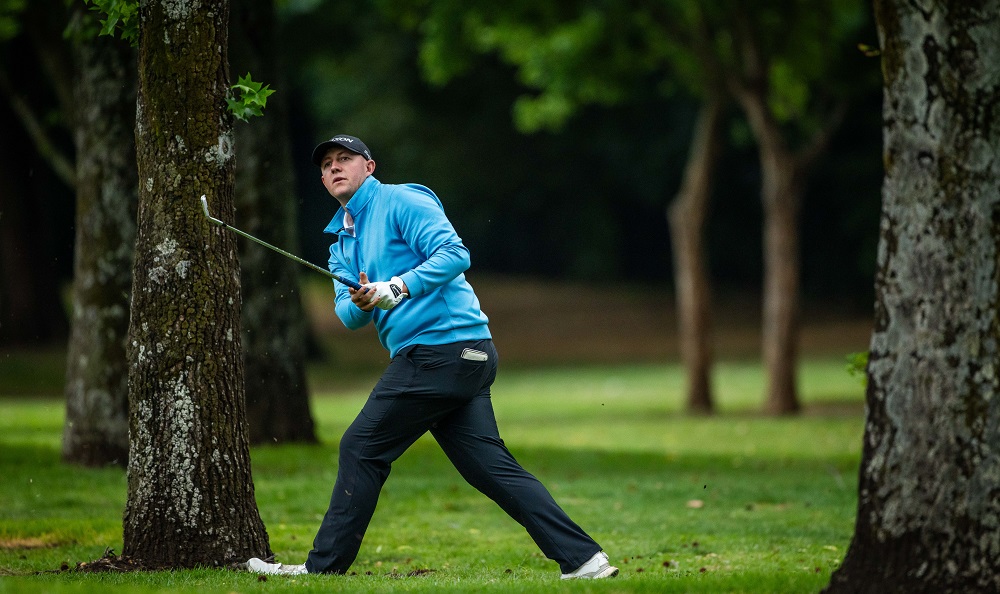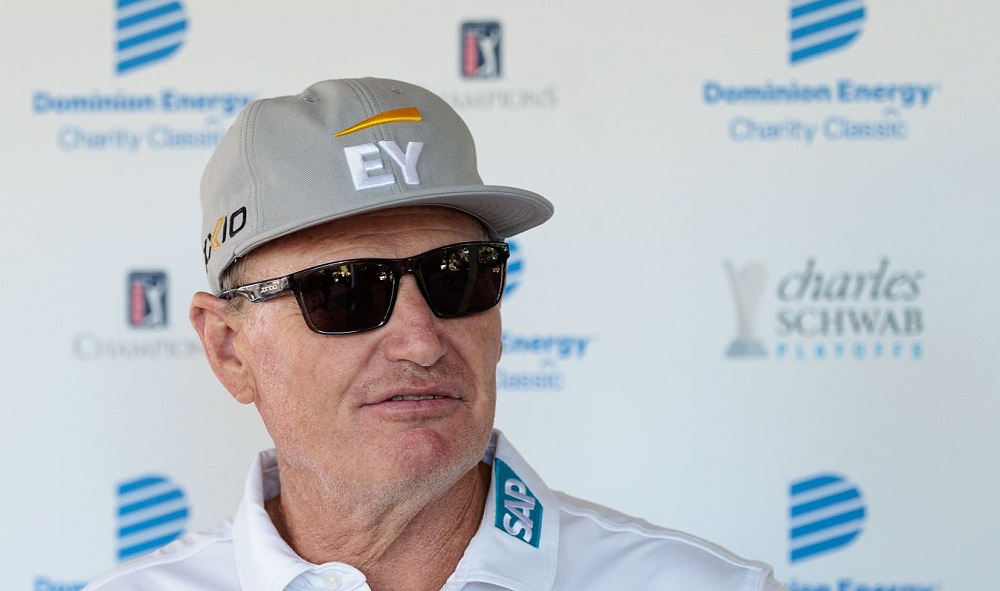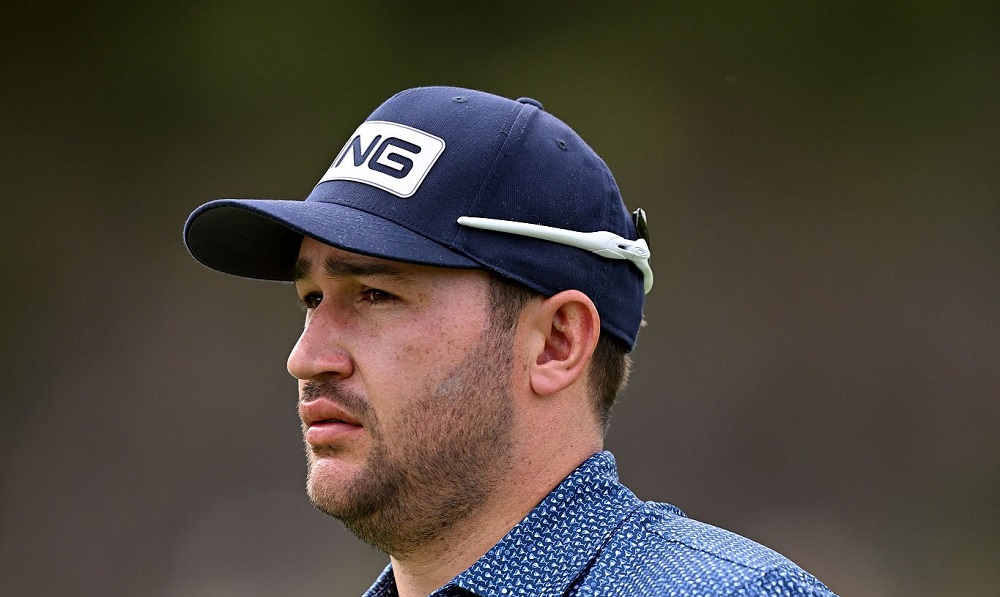There is nothing worse in sports, and possibly in life, than wasted talent. Nothing more gutting than potential left to wither. No narrative more haunting than what could have been. For Aldrich Potgieter, Sunday at Detroit Golf Club was about ensuring he never became one of those stories.
It took 77 holes. Five play-off trips back to familiar fairways. A prize fight on the greatest golf Tour in the world between two men, both vying for their first victory in that highest arena. It ended with an uppercut, a clutch birdie deep into the Michigan twilight on the same hole Potgieter had bogeyed earlier in the day.
But when the 17-foot, 10-inch putt dropped on the fifth play-off hole, Potgieter’s knees buckled slightly and his arms outstretched.
The youngest player on the PGA Tour had defeated 155 other men, and triumphed in a battle against self-doubt, against inexperience and against a pattern that had threatened to define him.
Because, if we are honest, talent has never been the question with Aldrich Potgieter.
At 20 years old, he is already a prodigy with a resume full of precocious firsts. Youngest winner in Korn Ferry Tour history. A decorated amateur with wins across continents. Longest hitter on the PGA Tour. A golf swing coiled with torque honed not from country clubs but from rugby scrums and wrestling mats. But for all the gifts, Potgieter had also brought a troubling trend into Detroit.
Five times this season, he had entered Sunday inside the top five. Five times he had failed to improve his position on the leaderboard. He was brilliant from Thursday through Saturday, but Sunday had been his wall.
Until it wasn’t.
“It was a big grind,” Potgieter said. “It was a very long day. Kind of couldn’t get ahead of myself. I didn’t get off to the best start.”
No, he didn’t. Starting the day with a two-shot lead at 19-under, Potgieter quickly dropped to one-over on his day through six. His advantage evaporated by the seventh tee box. The prodigy was slipping again, and it felt like the pattern might repeat unless something changed quickly.
“There was a switch that kind of went off when I lost the lead,” he said. “I felt like I can kind of chase something. I had to pull myself out of the environment I was in before those first couple holes and get in that chase mode where I can kind of play some different golf.”
He birdied the par-five seventh, then eighth and nearly made another on nine. He began to activate.
Birdies at 13 and 14 elevated him firmly back into the fray, but when he chunked a chip on 15 and made bogey, he did not fold. He ensured that that was his final bogey of the tournament, just his fifth all week.
“He’s only 20, and he’s just such a good lad,” Potgieter’s swing coach Justin Parsons told PGATour.com after the round. “He is so talented. I think he has just started navigating his way around all this information and just starting to work on his blueprint in golf. He was so raw when we started.”
That rawness was still evident Sunday. Potgieter’s approach game continues to lag behind his stratospheric driving numbers. When a player has a seven-iron that flies 200 yards and an eight-iron that goes 181 (a problem most reading this will never relate to), filling those gaps becomes an interesting challenge.
But Potgieter is learning. Evolving. Putting himself in the right positions to let his strengths shine.
At one point on Sunday, Potgieter touched 197mph in ball speed with driver in his hands. “I would like to have him cruising at around 185iish mph,” Parsons said. “As these kids recognize that they get too much speed, the game of golf gets harder for them.”
Still, there is no denying the advantage. At an average of 326 yards per drive, Potgieter leads the tour. He is the poster child for the incoming generation of power golf that has already reached the doorstep of the game’s highest level.
His peers knew what they were up against. Max Greyserman, who shot a bogey-free 67 to force the playioff, was valiant. “Not good,” Greyserman said afterward when asked how he felt. “Thought I hit a lot of good shots down the stretch… This one’s going to sting for a little bit.”
Chris Kirk, by far the most seasoned veteran in the hunt Sunday, missed a four-foot putt on the second play-off hole to bow out. “Yeah, obviously just really disappointed, but felt like I played great today,” said the six-time winner. “That’s the way it goes sometimes.”
And then there was Potgieter, whose putter he had sung the praises of earlier in the week refused to cash in to start his final round. “Definitely seeing a lot of putts not drop,” he said. “It was definitely a grind to kind of pull something out of the books to feel like I can hit the putt a lot harder but not lose where I’m aiming.”
 By the final playoff hole, back on the 15th where he stumbled earlier, he finally did.
By the final playoff hole, back on the 15th where he stumbled earlier, he finally did.
Faced with an 18-foot birdie putt, just one foot shorter than his putt on the first play-off hole that would’ve won the Mexico Open at VidantaWorld (Brian Campbell won a hole later after Potgieter missed a six-footer), Potgieter stuffed it dead centre.
“That was good,” Potgieter said, understated as always. “I just saw the ball roll end over end, and I knew it was going to go in.”
After the ball disappeared, he embraced his caddie, shook Greyserman’s hand, and then hugged his father, Heinrich, a former rugby player whose journey with Aldrich has stretched from Pretoria to Perth to this moment in Detroit.
“We had to give up a lot,” Potgieter said. “Moving to Australia, moving back. Emigrating is definitely not the easiest thing. Coming alone at the start of my career to the States and giving it a grind, and having my dad here has helped so much.”
Potgieter becomes the youngest South African to win on the PGA Tour, breaking Garrick Higgo’s mark. He is the ninth first-time winner on tour this season. But this one might not just be another name on that list.
“He’s an unbelievably talented player,” Parsons said. “But there’s a certain amount of rawness. Today, I think he just did a terrific job managing himself.”
That might be the most important part. At 20 years old, Potgieter has already shown what he can do when the rawness refines and when the moment calls for more than talent.
Talent alone would not have made the putt that beat Max Greyserman, or secured his Tour card for another two years or earned his spot in the PGA Championship next year (the only major he has yet to play.)
It was determination, not just talent, that made sure he would not join a long list of young golfers dubbed “The Next Big Thing,” who are today only remembered for what they could have been.
For the immediate future, Potgieter will only be remembered for what he is right now.
A winner.






